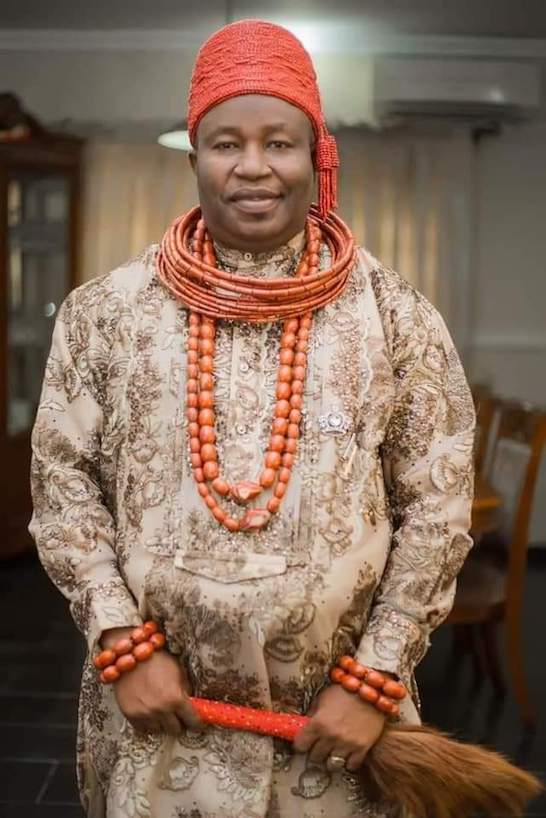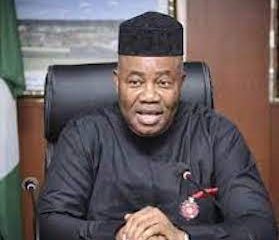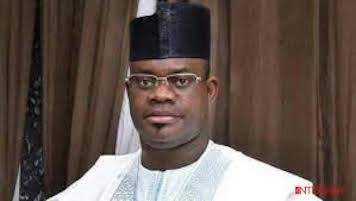FEATURES
Towards a Democracy-sensitive, People-oriented Judiciary

By Tunde Olusunle
That Nigeria’s very highly regarded *The Guardian* newspaper published a two-part editorial in the immediate past week on the nation’s judiciary, attests to the seriousness with which this arm of government is taken. *The Guardian* has deservedly earned its place in the nation’s media space, having survived four full decades, consistently making regular, daily showings on the newsstands.
This is despite the country’s unabated inclement socioeconomic situation which has summarily interred several other similar initiatives over the years. On Thursday March 16 and Friday March 17, 2023, an editorial titled “The judiciary and public criticism” featured on prominent pages of the authoritative publication. The editorial alluded to public denunciation of certain judgments delivered and actions taken, by the nation’s apex court and its leadership. Principally cited in the commentary, are pronouncements gifting Ahmed Lawan, president of the Senate, and Godswill Akpabio, former governor of Akwa Ibom state, tickets to contest the recent senatorial elections. Such appropriation was done by the Supreme Court, even when both political leaders did not participate in the primaries which would have presaged their emergence.Little known Bashir Machina had won the senatorial ticket for Yobe North, while Lawan was contesting the presidential ticket of the All Progressives Congress, (APC). Udom Ekpoudom a former deputy inspector general of police, (DIG), had also contested to represent Akwa Ibom North West zone in the senate, while Akpabio from the same zone, sought without success, the ticket of the nation’s top job. To the consternation of most followers of Nigerian politics, however, the Supreme Court ruled in favour of Lawan and Akpabio! Lyrics from *Unknown Soldier,* one of the classic hits of the maverick Afrobeat precursor, Fela Anikulapo-Kuti, appropriately capture such bewildering turn of events. Fela alludes to “government magic” which turns “red into blue and electric into candle!” The January 2020 “installation” in confounding circumstances, of Hope Uzodinma, by the Supreme Court, as governor of Imo State a few years ago, and the displacement of Emeka Ihedioha, remains fresh in popular consciousness.
Unsettled by accentuated public angst and vituperations against the Lawan/Machina and Akpabio/Ekpoudom twin-rulings, the Supreme Court through its director of information and press affairs, Festus Akande, issued a rejoinder. Titled: “Be mindful of unwarranted attacks on the judiciary,” the statement countered insinuations to the effect that sections of the judiciary had been compromised. Akande had stated that the concoctions to the effect that its justices were bought over “by some unknown and unseen persons, was nothing short of a bizarre expression of ignorance.” The release was very obviously a response to public bewilderment to the apex court’s arbitration in the substantial political litigations of Lawan vs Machina, and Akpabio vs the Independent National Electoral Commission, (INEC) and other interested parties. The Supreme Court, Dr Akande noted, was overburdened with nearly 600 cases deriving from the primaries of the various parties. The topmost arbiter in the land, Akande advanced, “was duty-bound to adjudicate on the matters brought before it to the best of its ability and in accordance with the law.”
Our recent very highly controversial and largely opaque general elections, have spawned additional responsibility for the Supreme Court. From parliamentary, to gubernatorial and thenceforth to the presidential elections, fall-outs, without doubt, will engage election tribunals and be escalated to the Supreme Court, in the weeks and months to come. Of the multilevel petitions emanating from the polls, that of the presidential election engenders the most interest and attention of Nigerians and indeed the global community. This is understandable given the pivotal place and preeminence of the president to the superintendence over, and guardianship of the people and the state. A winner, Bola Tinubu of the All Progressives Congress, (APC), was in the early hours of Wednesday February 28, 2023 returned by INEC.
There are, however, crystal clear, convincing and compelling reasons to interrogate the authenticity and veracity of the electoral exercise which produced him, in its totality. INEC which supposedly, had been preparing for the recent elections for four full years since the last general polls, pooling resources close to the one billion US dollar mark, delivered a complete sham, a shameful string of elections. INEC’s pretences and deceit of Nigerians about technological innovations to enhance and ensure seamless, fraud-proof, open, transparent and believable elections, was a colossal scam. The process was a perfidious bouquet of gross impunity, unashamed indiscretions, unparalleled and unpardonable lawlessness, unacceptable violence, brazen electoral thievery and mass disenfranchisement among others. The Centre for Democracy and Development, (CDD), reports that Nigeria’s recent electioneering, claimed 109 lives, which means more than one death per day within the period.
Mahmood Yakubu, a professor of History and INEC’s chairman for a second term of four years, delivered the most preposterous general elections this fourth republic. If the performance of Maurice Iwu, also a professor and Yakubu’s last but one predecessor was presumed controversial, Yakubu has unwittingly beatified Iwu. Yakubu’s outing fell way below the basement of global best practices. The characterisation of the elections by the local and global media, has been most unsparing. *The Economist* described the presidential election as “a chaotically organised vote and messy count.” An editorial by *The Financial Times* said the poll was “deeply flawed” and the winner “a wealthy political fixer.” *Aljazeera* wrote about “How violence robs Nigeria of their votes.” A Canadian newspaper also writes that “depression, anxiety, uncertainty be-clouds Nigeria’s political space as a drug-kingpin wins the election.”
Yakubu’s regime which popularised the culture of “inconclusive elections,” has equally introduced the dismissive expression, “go to court,” to the nation’s electoral vocabulary, in direct reference to disaffected parties. Atiku Abubakar, Nigeria’s former vice president, flew the flag of the Peoples’ Democratic Party, (PDP) at the recent presidential poll. There is substantial, even mind-boggling evidence to the effect that he won the election. Theories and hypotheses about the pre-election cannibalism of his vote tally by Peter Obi’s breakaway from the PDP to the Labour Party, (PDP), and the *G-5* governors, fall flat in the face of tangible evidence. Obi, by the way, filed his petition investigating the process of the emergence of Tinubu as president-elect, 24 hours before Atiku’s.
There is apprehension that electoral malfeasance as already committed and legalised by the issuance of the apposite “Certificate of Return,” (CoR) is *fait accompli.* Atiku, however, is calling for the withdrawal of Tinubu’s CoR, on the basis of “noncompliance with the electoral act, which invalidates Tinubu’s election.” While observing that by-passing and non-use of BVAS in the transmission of results impugned the integrity of the polls, Atiku also listed a dozen corrupt practices perpetrated by INEC to swing the election in favour of Tinubu. The suppression of votes; manipulation of ballots and ballot boxes; manipulation of BVAS machines; manipulation of accreditation and collation, and the manipulation of election material(s) delivery, feature among these infractions. Manipulation of election material(s); reverse logistics; massive thumb-printing of ballot papers, destruction of electoral materials; mutilations, cancellations; overwriting on result sheets, have also been highlighted in the petition. Atiku urges the court to either declare him Nigeria’s president or order a fresh election. Atiku’s core desire is that the votes of the people, their franchise, should count, consistent with global democratic traditions and expectations.
Flowing from recent experience where the judiciary has been repeatedly kicked around and disrespected by the executive, there are palpable concerns that the judiciary as presently constituted may not be in a position to deliver justice. The homes of revered judges and justices were breached under the cover of night in places, by operatives of the secret police, ostensibly to search for monies paid to them to influence judgements, under the present regime. The manner of the suspension, arraignment and summary retirement of Walter Nkanu Onnoghen, former CJN within the 2019 electoral season, reaffirms the dilemma of the judiciary under an all-powerful executive arm of government. There are apprehensions about the plausibility of objective, dispassionate, independent opinion and adjudication, by the Supreme Court. Yet, there is no better time for the judiciary to exercise its professionalism, forthrightness, and alignment with popular will and democracy, than at this time in our national and democratic evolution.
Certain video clips have been trending of late, depicting the incumbent CJN, Olukayode Ariwoola as presumably politically partisan. Ariwoola spoke at a banquet in his honour in Port Harcourt late last year, expressing delight that the governor of his state, Seyi Makinde, was a member of the *G-5* faction of governors in the PDP. Whereas Ariwoola said he intended to recommend to the Oyo State governor the handbook of infrastructural development in Rivers State, the manner of his expression lent itself to dialectics. There are also salient doubts accentuated by the nepotistic governmental manual operated by the outgoing President Muhammadu Buhari. Faith and ethnicity, more than anytime in our political trajectory, sadly, have played very critical roles across the broad canvas of governance and administration under Buhari.
There are reservations that justice may be difficult to get under a judiciary headed by a kinsman of the president-elect, if the latter, who hails from Lagos State, gets sworn-in. CJN Ariwoola hails from Oyo, in the same south west geopolitical zone like Bola Tinubu. An online newspaper has just reported that Ariwoola was in London on a short vacation, during which he will hold a secret meeting with Tinubu who himself was reported to have travelled to Paris earlier this week. Will all of these impact on honesty, believability and transparency at the coming arbitration? This is a unique opportunity for the judiciary to rediscover and reassert itself as the irrepressible temple of truth and justice in the service of democracy and the people.
*Tunde Olusunle, PhD, is Special Adviser on Media and Publicity to Atiku Abubakar, GCON, presidential flagbearer of the Peoples’ Democratic Party, (PDP)*
NEWS
Akpabio, Oborevwori, Ogbuku to grace 13th Extraordinary General Assembly of South–South Monarchs Forum

The 13th Extraordinary General Assembly of the Forum of South–South Monarchs is scheduled to hold in Asaba from May 21 – 22 May, with the President of the Senate and Chairman of the National Assembly, Senator (Dr) Godswill Obot Akpabio CON as Special Guest of Honour and the Executive Governor of Delta State, Excellency Rt Hon Elder Sheriff FO Oborevwori as the Chief Host.
A statement issued in Abuja on Sunday by the Chairman, Planning Committee, HRM Pere Stanley Perediegha Luke – Kalanama VIII (JP) – Pere of Akugbene – Mein Kingdom, and 1st Vice Chairman, Delta State Council of Traditional Rulers, said the event will hold at the Unity Hall, Government House, Asaba, on the theme: “Strengthening Stakeholder Collaboration for Development of the South – South Region: The Role of the Traditional Institution. ”
According to the statement, the Managing Director of the Niger Delta Development Commission (NDDC), Chief Dr Samuel Ogbuku, is expected to be the Guest Speaker, while the keynote address will be presented by Adele L. Jinadu, former Executive Director, Centre for Advanced Social Sciences (CASS) Port Harcourt and Adjunct Professor, Department of Political Science, University of Lagos.
Membership of the Forum consists of all First-Class Traditional Rulers and Members of the State Councils of Traditional Rulers of the six States of the South – South geopolitical zone: Akwa Ibom, Bayelsa, Cross River, Delta, Edo and Rivers States.
The statement also explained that the 13th Extraordinary General Assembly of the Forum is being organized in partnership with the Ashcraft Centre for Social Science Research to intensify collaboration, deepen synergy and articulate a common front among the diverse Stakeholders in the Region and beyond towards achieving the strategic imperatives of security and sustainable socio-economic development for the Region.
“The Forum is consciously aware that emerging national realities require the collective and deliberate action of all the gatekeepers to achieve the aspirations of the founding fathers and people of the Region,” it added.
Giving a background to the meeting, the statement noted that the Asaba event was in consonance with the fact that sustainable development, peace and security are major factors in nation building and national security, which constitute the fundamental underpinnings in the existence and survival of any society or nation.
“Therefore, the traditional institution must be alive to its responsibilities in achieving its natural mandate of promoting peaceful co-existence, peace and security in their domains, and also fostering national security which is fundamental in national development,” it said.
It expressed the firm belief of the South – South Monarchs Forum believes that by building Stakeholder synergy, the meeting shall engender shared responsibilities towards achieving the institutionalization of the road map and priorities of the policy frameworks crafted to boost economic revival, security and stability of the Region.
“It is also the expectation of the Forum that the derivatives from the meeting shall regenerate confidence in securing Foreign Direct Investment into the Region’s productive Sectors as canvassed by His Excellency President Bola Ahmed Tinubu, GCFR, at different international fora; and also boost capital growth and turnkey business startups and development,” it said.
While lamenting the palpable security challenges in the South-South Region, especially the unfortunate killing of 17 military personnel in Okuama community in Ughelli South LGA on 14th March, 2024, the said it was expected that the Asaba meeting would provide the avenue to extensively deliberate on how to avoid recurrence in any community within the Region.
It expressed appreciation to the Senate President, Senator Godswill Obot Akpabio; the Executive Governor of Delta State, Rt Hon Sheriff FO Oborevwori; the Managing Director of NDDC, Chief Dr Samuel Ogbuku and; all political leaders from the zone for their support geared towards making the forthcoming meeting a success.
“The subject matter is very sensitive to the aspirations of the Region. It is hoped that the proceedings from this General Assembly shall also inject fresh ideas and initiatives into the overall architecture of the Forum to reinforce a systemized and collective framework in actualizing its mandate.
“We also look forward to the robust participation and inputs of all Stakeholders, both in the public and private circles towards achieving the strategic imperatives of this event. The Forum is hopeful that all Stakeholders will consider this as a patriotic duty to our fatherland and contribute to the success of this event,” the statement said.
FEATURES
Bobrisky, Naira Abuse and Matters Arising

In February 2024, the mass media was awash with reports of the arrest of Bassey Idio for currency racketeering by operatives of the Uyo Zonal Command of Economic and Financial Crimes Commission (EFCC).
The 59-year-old ‘naira trader’ was apprehended following intelligence and surveillance revealing his illicit cash transactions involving both local and foreign currencies.
He was found selling N700,000 new Naira notes, comprising 12 bundles of N500 notes totaling N600,000, and a bundle of N1000 notes amounting to N100,000.
Idio, later confessed to the crime and was convicted.
Before then, in a widely circulated video, Federal lawmaker Ibrahim Abuna was seen distributing money to a crowd presumed to be his constituents.
Abuna was representing Mafa, Dikwa and Konduga federal constituency of Borno inthe House of Representatives.
He demonstrated his generosity by tossing money from a balcony, disregarding the potential risk of a stampede as people fought to catch the airborne naira notes.
The recipients consisted of young men and women, as well as elderly persons.
Sadly, no arrest or conviction was made since 2021 when the video was made.
On daily basis the Abuna scenario is repeated in different parts of the country as celebrities and politicians try to outdo one another as they engage in money spraying at social events and even political gathering.
Recently, there was a dramatic twist in this otherwise “normal” behavior among Nigerians as a Federal High Court in Lagos sentenced Idris Okuneye ‘!Bobrisky’, a popular crossdresser, to six months in prison for naira abuse.
Justice Abimbola Awogboro, popularly known as Bobrisky, who was prosecuted by the EFCC, was jailed as a deterrent to those that may engage in naira abuse.
The judge also said that Bobrisky should use his influence to teach people about legal money practices.
He said Bobrisky’s offence is contrary to, and punishable, under Section 21(1) of the Central Bank Act 2007.
Naira abuse has been illegal in Nigeria for a long time, but spraying naira notes or throwing its bundles during social events has been a tradition in Nigeria for many years but unfortunately those in indulge in them have not been brought to book under the Act.
The Act recognses naira abuse to include actions like throwing, stamping, engraving, selling, and mutilating the currency. They carry a penalty of a ₦50,000 fine or six months in prison.
According to the Act, tampering includes impairing, diminishing, or lightening coins or notes, as well as defacing them through stamping, engraving, mutilating, or other forms of deliberate abuse.
It notes that spraying, dancing, or stepping on the naira during social occasions or otherwise is considered an abuse and defacing of the currency, punishable under this Act.
A financial expert, Mr Rilwan Afolabi, says the Act aims to protect the integrity and value of Nigeria’s currency by imposing strict penalties on those who tamper with or abuse it.
According to him, by defining various forms of tampering and abuse, including common practices like spraying or dancing on the naira during social events, the Act seeks to deter such behaviours land promote respect for the currency.
“The inclusion of penalties for hawking, selling, or trading in Naira notes further reinforces the seriousness with which the law treats any actions that could undermine the currency’s stability and legitimacy.
“Overall, the Act reflects the CBN’s commitment to maintaining the integrity of Nigeria’s monetary system and ensuring public confidence in the national currency,” he said.
However, many people think the punishment meted to Bobrisky was too harsh and want leniency, while others suggest community service for non-violent crimes like this.
Social activist, Aisha Yesufu, has criticised Bobrisky for admitting guilt to the charge of naira mutilation.
In a write-up on X, formerly known as Twitter, Aisha wondered why Bobrisky quickly admitted guilt.
“Who advised him to plead guilty?”, she screamed, while raising concerns about how spraying money could be equated to mutilating money and why the law is selectively enforced.
She added: “Worst case scenario, I would have advised him to plead ‘No Contest.’
Yesufu raised more posers: “If spraying money is considered mutilation, then what about politicians throwing money at people?
“Mutilation and spraying money how are they the same? Did Bobrisky pick a scissors and started shredding the Naira
“We just have a jungle where anything goes because some people’s morality is offended.
“If Bobrisky has crimes he has committed, prosecute him on those and not this selective prosecutions.”
Also reacting, Deji Adeyanju, a lawyer and social activist, expressed concern over the six-month sentence handed to Bobrisky.
The sentence, delivered without the option of a fine, has raised questions about the severity of punishment for what some perceive as a cultural practice.
While acknowledging the importance of upholding the law, Adeyanju highlighted Bobrisky’s status as a first-time offender and his pledge to utilise his platform to raise awareness against Naira mutilation.
He urged the courts to consider the cultural context surrounding such offenses and emphasised the need for extensive public sensitisation before prosecution.
The issue of selective enforcement was also raised, as Adeyanju questioned why he was singled out for prosecution when others were reportedly engaged in similar acts during the event in question.
He cautioned against the perception of bias in law enforcement and called for a fair and impartial approach to justice.
In light of these concerns, Adeyanju proposed an alternative approach to handling such crimes as Naira mutilation, advocating community service as an ppropriate form of punishment.
He reaffirmed his commitment to upholding the rule of law and protecting human rights while urging security agencies to consider alternative measures for addressing such offenses.
Adeyanju said that the ongoing debate surrounding Bobrisky’s sentence underscored broader discussions about cultural practices, law enforcement and the balance between tradition and legal compliance in Nigerian society.
As stakeholders continue to weigh in on the matter, it remains to be seen how authorities will address the complexities surrounding Naira mutilation and similar offenses in the future.
Also, they call for comprehensive campaigns on the importance of preserving the integrity of naira.
Such initiatives, they say, could help instill a culture of respect for the currency and discourage behaviours that undermine its integrity and value. (NANFeatures)
FEATURES
President Tinubu at 72: Celebrating a Life in Forward Motion

By Keem Abdul
He is 72 on Friday, March, 29, 2024. But in a nod to the current mood across the nation (occasioned by the hardship and insecurity in the land) President Bola Ahmed Tinubu has said he wouldn’t be celebrating that auspicious day.
Instead, according to a release from his media office, he has told his friends, well-wishers and associates to donate to charity rather than spend valuable resources placing goodwill messages and advertorials in print and electronic media outlets to mark the day.
The president, according to the release made particular reference to the tragic killing of a number of soldiers and police officers in Delta State, as well as the serious security breaches by criminal elements in various parts of Nigeria (which has led to an unacceptably high toll of death, injury and loss of property) as reasons why a celebration at this time would be grossly inappropriate – if not downright insensitive.
In place of a celebration, Tinubu says he would use the day to reflect and re-dedicate himself to the task of building a more stable, secure, prosperous and united Nigeria – in line with his mandate as the leader of the commonwealth, namely, to make life better for all her citizens. He, however, acknowledged as some sort of a birthday gift, the recent release of the students kidnapped some weeks ago in Kaduna and Sokoto States. But a gift of far greater import, he added, would be the emergence of a more stable, more secure, virile, prosperous and united Nigeria.
That being said, though, even as the President reflects on his life’s journey so far and his ascendance to the highest office in the land at this time, many Nigerians and even non-Nigerians will also be pondering the phenomenon called Asiwaju Bola Ahmed Tinubu, GCFR, the combination of qualities and attributes (and the unique set of circumstances) that have brought him to this moment in his life and in the evolution of the Nigerian nation.
It is hard to measure the essence of a life as multifaceted and dynamic as that of the man Bola Tinubu. Suffice it to say – as those who know him well have repeatedly done – that he remains an enigma. That description of one’s essential character may be a cliché, but in the case of Asiwaju Bola Tinubu, it is all too true.
Since the advent of Nigeria’s current democratic dispensation in 1999, Asiwaju Tinubu has become perhaps the most constant factor in defining the outcomes of electoral contests in the country – and even more so in his home state of Lagos. His almost 100% success rate in this regard is not by accident. A great writer once said that the heights great men attained are ‘not by sudden flight.’
Tinubu’s success as a politician testifies to his capacity for deep reflection and prompt action in equal measure.
On one hand, he has always been deliberate and intentional in the planning and execution of his strategies, doing nothing that is superfluous or forced. His caution, in other words, is matched by his ability to execute his plan – in a way that meshes into the whole vision which he has crafted for himself and the people that he leads. Every step he takes has been methodical and fills a gap in his overall quest for the enthronement of a continuous cycle of progress and prosperity within his sphere of influence.
He is a man with extra ordinary sensory perception who’s in tune with his inner self thus making him understand that there’s no force on earth strong enough to restrict the procession of promises of God. His perception wasn’t tainted by experience of betrayals rather he recognised that’s there’s no betrayal that he went through that didn’t work together for his good, that there’s never a dagger thrown at him that God didn’t convert to a stronger him.
1999 to date has been a time of almost constant struggle for Asiwaju Tinubu. His battles with the federal government, and with the internal opposition in Lagos, are too well-known to recount here. But the question is: Why does he fight so hard, For whom, or what, is he fighting? Wealth? Power for power’s sake? Fame and recognition? If so, why does he still keep fighting NOW, even AFTER having acquired these things in some measure?
One unmistakable answer to these questions – no matter one’s background or political and religious affiliation – would be that Asiwaju Tinubu is a man driven, not just by personal ambition or group interest, but by the altruistic desire to confront the forces of economic underdevelopment and social rot, no matter what it may cost him personally. His willingness to go all out in pursuit of his goals and convictions – even if it means sacrificing himself for others and the society as a whole, is truly remarkable.
In the rough-and-tumble of Nigerian politics where elections are usually a clash of weapons rather than a contest of ideas and ideologies, and most politicians are devoid of both, Tinubu’s principles and idealism can be hinged on the simple South African maxim of “Ubuntu” (I am because we are).
This understanding of the value of an unshakable bond between brethren is what has shaped the dynamics of Tinubu’s actions and engagements with other stakeholders. On more than one occasion, he has professed a desire to build the community; the people in it and the institutions and traditions that govern them – based on his belief that once a society is healthy; all elements within it will be significantly impacted.
It is also the reason he has built the careers of so many other leaders, men and women who have gone on to become political giants in their own right since 1999 – again, based on his belief that various people with diverse capacities in various places can coalesce to build a better and stronger society. No matter what his detractors may say, Tinubu’s investment in the lives and political fortunes of others is far from personal or individualistic, far from it.
Many distinguished persons in the society are the products of this investment. The results so far are a demonstration of the fact that the power to make a difference in the lives of Nigerians is within his grasp – and in our grasp if we all make an effort.
Much has been said about the Jagaban’s unique combination of fearlessness and humanity. Though he never goes out of his way to court controversy, he never runs away from one, especially when he has restrained himself and sought all ways to seek rapprochement with the other party. His capacity for compromise and respectful dialogue is how he has been able to build a team of highly dedicated men and women around himself.
As his close associates mark his 72 years on earth (one way or another) or join him in his reflections on the state of Nigeria and his mandate to lift the country and its people out of our present quagmire, it’s the prayer of all right thinking and patriotic Nigerians that the good Lord who has seen fit to allow Tinubu to occupy that lofty position will keep him in good health and preserve him so that he can fulfil the purpose for which God brought him into existence, that God will strengthen him, equip him with the physical energy and profound wisdom, understanding and knowledge that he needs to drive the vision that transformed Lagos into a globally-competitive megacity and the 5th largest economy in Africa.
His promise to replicate that transformation on a national scale is still on track, and with the help of God and the committed cooperation of the Nigerian people, the mission will be fulfilled.
Happy birthday, Mr. President!
May your strength be Renewed. God bless Mr. President. God bless Nigeria.
Keem Abdul, publisher and writer, hails from Lagos. He can be reached via +2348038795377 or Akeemabdul2023@gmail.com

























